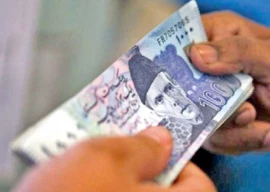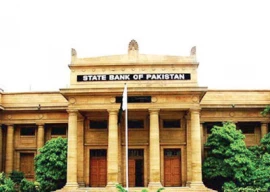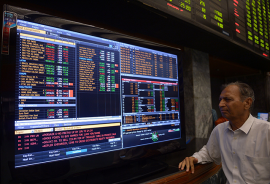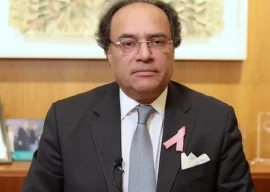
Standard Chartered Bank Pakistan expects GDP will grow 4.4% in 2015-16, less than the economic growth rate of 4.5% projected by the International Monetary Fund (IMF).
Speaking at Standard Chartered Global Research Briefing here on Tuesday, bank’s senior economist Bilal Khan said domestic demand led by consumption remains strong, but supply-side constraints are holding back growth in the country.
Out of the darkness: Govt should allocate 4% of GDP to technology: expert
Economics-speak for factors that hold back production from keeping pace with the rising demand, supply-side constraints include energy shortages, increasing cost of doing business and inefficiencies caused by state-owned enterprises.
Khan said Pakistan has traditionally moved from one IMF bailout programme to another because of periodic balance of payment (BoP) crises. “We believe we are going to break that cycle now. The IMF is also focusing this time on addressing supply-side constraints,” he said, adding that the BoP is expected to remain positive in 2015-16 because of heavy foreign inflows.

Standard Chartered expects inflation to increase gradually to the average of 3.7% for 2015-16. “We believe the monetary easing cycle that began in November 2014 has ended,” Khan said.
ADB paints gloomy picture over deficit, growth targets
Replying to a question, he said foreign direct investment (FDI) is not picking up pace because of the same supply-side constraints that have been hindering GDP growth. Pakistan received FDI of only $350.8 million in July-October, which is down 24.1% on an annual basis.
Speaking on the occasion, Standard Chartered Bank Chief Economist Marios Maratheftis said he foresees oil prices to go up next year. “By the fourth quarter of next year, we expect the global oil price to be $75 per barrel,” he said.
He added that Standard Chartered expects deceleration of growth in the Middle East in 2016. Saudi Arabia may face liquidity problems going ahead, he said, as it is withdrawing money from its reserves in the wake of a massive drop in oil prices.
Economy growth: Pakistan set to miss target for second year
Inflows from Saudi Arabia are the largest source of remittances. They amounted to $1.9 billion in the first four months of 2015-16, up 10.7% from the comparable period of last year.
The overall share of the oil-rich GCC countries in Pakistan is 63.9%. Many analysts fear remittances from these countries may dwindle going forward, as their governments begin to scale back infrastructure spending in the wake of a sharp fall in global oil prices.
Standard Chartered believes a slowdown in construction activities will have a negative impact, albeit insignificant, on remittances from Pakistani workers living in the Middle East.
Referring to the recent global turmoil across asset classes, Maratheftis said two factors are at play: the ‘view’ that China is slowing down, and the impending interest rate hike by the US Federal Reserve.
Asian Development Bank approves $6b loan for Pakistan
He said a slowdown in the Chinese economy should not be feared. “China has been slowing down since 2012. It is trying to rebalance its economy by shifting away from manufacturing. We need China to slow down. Quality of growth, not the speed of growth, should matter,” Maratheftis said, adding he expects China to grow at 6.9% this year.
With regard to the US interest rate hike, the Standard Chartered chief economist says the Fed cannot increase the interest rate too aggressively because of the US economic performance and the absence of inflation.“We expect the Fed to increase the interest rate in December and then in March,” he added.
Published in The Express Tribune, November 25th, 2015.
Like Business on Facebook, follow @TribuneBiz on Twitter to stay informed and join in the conversation.































1714129906-0/Clint-Eastwood-(1)1714129906-0-270x192.webp)






COMMENTS (1)
Comments are moderated and generally will be posted if they are on-topic and not abusive.
For more information, please see our Comments FAQ